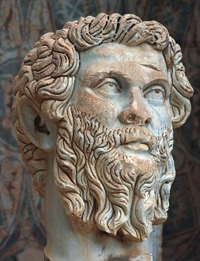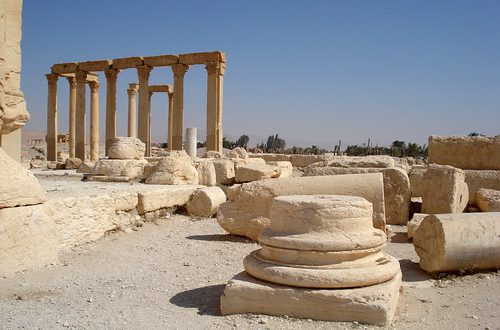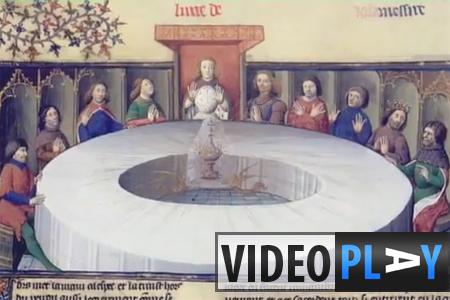 David Pybus describes himself as a 21st century alchemist and aromancer, and says his mission in life is to get people to stop their frenetic living from time to time and to smell the roses. Hes underselling himself, of course. Hes really a chemist with more than 20 years experience at the worlds largest perfume makers.
David Pybus describes himself as a 21st century alchemist and aromancer, and says his mission in life is to get people to stop their frenetic living from time to time and to smell the roses. Hes underselling himself, of course. Hes really a chemist with more than 20 years experience at the worlds largest perfume makers.
During an appearance on the BBCs Dragons Den in 2007, he convinced entrepreneurs Theo Paphitis and Peter Jones to part with 40,000 each to help launch Scents of Time, a range of fragrances based on ancient themes.
Since his appearance on the show and with the backing of the two dragons, five fragrances Nenufar, Pyxis, Maya, Ankh and Night Star have been launched, with another two, Chrism (the anointing oil of European monarchs) and Aurum (a fragrance of the ancient Olympics) on the way. Nenufar is billed as “the sacred scent of Cleopatra” and used to seduce Mark Antony and Caesar, Pyxis is “the lost perfume of Pompeii“, Maya is the mystic scent of the Americas, Ankh is Tutankhamuns aroma of intrigue, and Night Star is the recreation of a rose scent discovered in the wreck of the Titanic. More than a dozen scents are being developed as part of a 20-year strategy to corner a slice of the perfume market.
The Indiana Jones of the Perfume World
Visit msnbc.com for Breaking News, World News, and News about the Economy
Pybus whose nicknames apparently include the Indiana Jones of the perfume industry and the Perfume Hunter (his middle name is Hunter) is to perfume what Patrick McGovern is to wine. Hes worked with archaeologists at Pompeii and other ancient sites to study and understand the use of fragrances in ancient times in order to re-create them for todays consumers. He says ancient scents have stood the test of time and are still remarkably fit for modern days.
After all cinnamon has been cinnamon, and rose rose, for millennia, he writes on his website. Nothing is new under the sun and the ancients blended perfumes just as well as any contemporary nose.
Pybus is the author of several perfume-related books, including Transports of Delight: An Aromatic Journey in Verse from East to West on the Wings of Perfume and Kodo: The Way of Calm, an exploration of the use of incense in ancient Japanese culture. Two more books are expected this year, including Scents of Time, which tells the story of the perfume range and its links to ancient times.
Cornering The Market
The perfumes in line with their ancient origins are intended to be unisex. He says the range has been popular among heterosexual men and women, as well as among gay consumers. This has convinced us simply to follow historic precedent and not to make the distinction. Less than 100 years ago, fragrances were used by all on the basis of what they liked, Pybus explains. There was no male/female distinction (think of Blackadder, when in Elizabethan times men wore ruffs, ear rings and the like.) It was those tricksy marketing people who dreamed it all up.
But, as youd expect with a product backed by Paphitis and Jones, the Scents of Time range isn’t immune to a little tricksy marketing if it helps it appeal to the modern masses. The range has been designed with the environment in mind: Pybus is against testing perfumes on animals, and he says more than 80% of the materials used in his packaging are recycled, with 97% of the resulting packaging in turn recyclable. And hes even done the maths on the products carbon footprint: The aromas for creating a perfume come for all over the world, and the formulae is secret, but taking everything into account, my best estimate is that to make and pack one bottle of fragrance ready for shipment uses up less than one tenth of a mile,” he says. “To get this figure, I divided the mileage needed to get from manufacturers of components to the factory all the raw materials, averaging one thousand miles for the fragrance materials, and took into account the weight percentage of each of the materials in the final product. Don’t forget that materials are sent out in bulk and we manufacture one thousand bottles at a time. It helps that all the component suppliers are UK-based, apart from the bottle which comes from France.
There is more about each of the perfumes including how they were created in downloadable booklets on the official website. Theres also a clip here of Pybus on Radio 4s Excess Baggage programme talking about scents and how smells can remind travellers of more exotic times long after their holiday is over.





